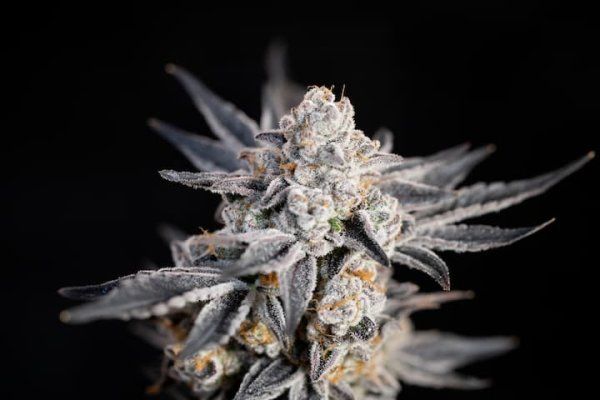On Thursday, the New Hampshire state Senate rejected a proposal to legalize recreational marijuana, with senators from both parties expressing concerns about the safety of children. The bill, which had been approved by the New Hampshire House of Representatives in April, was turned down in the Senate with a 14-10 vote on May 11.
Jeb Bradley, the Republican President of the New Hampshire Senate, argued that legalizing marijuana is inappropriate as the state grapples with a drug addiction and overdose crisis.
"Introducing recreational marijuana at this crucial moment would convey a mixed message, potentially worsening the already dangerous drug situation and putting more lives in jeopardy," Bradley stated in a written comment reported by the Coast Reporter.
If the proposal had been endorsed by the state Senate and authorized by Republican Governor Chris Sununu, House Bill 639 would have permitted adults aged 21 and over to possess and use limited quantities of marijuana. New Hampshire would have been the 22nd state to legalize recreational marijuana and the last in New England to lift the cannabis ban if the bill had passed.
The proposed legislation would have rebranded the New Hampshire Liquor Commission as the Liquor and Cannabis Commission, which would oversee the commercial growth, processing, safety testing, and distribution of cannabis. Additionally, the bill proposed a 12.5% tax on cannabis cultivation, with the majority of the revenue allocated to the state's pension liability and New Hampshire's education trust fund. The funds raised from cannabis taxes would have also supported substance abuse programs and law enforcement training.
Currently, possession of up to ¾ of an ounce of cannabis in New Hampshire is considered a civil offense and is subject to a fine of up to $100. Possessing more than ¾ of an ounce is a misdemeanor, punishable by up to one year in jail and a fine of up to $350.
Senator Lou D’Allesandro, the only Democrat in the Senate who voted against the marijuana legalization bill, emphasized his 50-year background as a teacher, coach, and grandparent, stating that he opposed the legislation to safeguard children.
D’Allesandro expressed concern that the bill would send a message to young people that marijuana is risk-free and can be consumed without harmful effects, a belief he refuted as false.
Except for D’Allesandro, all Democratic senators supported the bill, whereas all but one Republican voted against it. Democratic Senator Becky Whitley challenged the notion that legalizing marijuana for adults would lead to a significant increase in youth usage.
Whitley acknowledged the existing use of marijuana among young people in the state and expressed her desire to reduce it, believing that legalization could potentially achieve this goal.
House Democratic Leader Matt Wilhelm cited widespread public backing for marijuana legalization in New Hampshire and suggested that regulating cannabis could positively impact public health.
Wilhelm pointed out that New Hampshire's continued prohibition causes residents to contribute tax dollars toward surrounding states' programs and services, benefiting their citizens instead.
Frank Knaack, policy director at the American Civil Liberties Union of New Hampshire, rebuked senators who didn't support the legalization bill, accusing them of disregarding their constituents' wishes and perpetuating unnecessary criminal justice involvement, especially for Black individuals in the state.
On April 7, the New Hampshire House of Representatives passed the legislation, but its chances in the Senate diminished after a crucial committee advised against its approval. Previous efforts to legalize recreational marijuana in the state have also passed in the House but failed in the Senate. Advocates of HB 639 hoped for a breakthrough in 2023.
Democratic Representative Matt Wilhelm, who co-sponsored the bipartisan bill in the House of Representatives, emphasized the need for legalization in a statement last month, noting that New Hampshire is the only New England state yet to legalize cannabis. He argued that legalization of adult possession of small amounts of cannabis is essential for the state and urged its implementation in 2023.
Jeb Bradley, the Republican President of the New Hampshire Senate, argued that legalizing marijuana is inappropriate as the state grapples with a drug addiction and overdose crisis.
"Introducing recreational marijuana at this crucial moment would convey a mixed message, potentially worsening the already dangerous drug situation and putting more lives in jeopardy," Bradley stated in a written comment reported by the Coast Reporter.
If the proposal had been endorsed by the state Senate and authorized by Republican Governor Chris Sununu, House Bill 639 would have permitted adults aged 21 and over to possess and use limited quantities of marijuana. New Hampshire would have been the 22nd state to legalize recreational marijuana and the last in New England to lift the cannabis ban if the bill had passed.
The proposed legislation would have rebranded the New Hampshire Liquor Commission as the Liquor and Cannabis Commission, which would oversee the commercial growth, processing, safety testing, and distribution of cannabis. Additionally, the bill proposed a 12.5% tax on cannabis cultivation, with the majority of the revenue allocated to the state's pension liability and New Hampshire's education trust fund. The funds raised from cannabis taxes would have also supported substance abuse programs and law enforcement training.
Currently, possession of up to ¾ of an ounce of cannabis in New Hampshire is considered a civil offense and is subject to a fine of up to $100. Possessing more than ¾ of an ounce is a misdemeanor, punishable by up to one year in jail and a fine of up to $350.
Senator Lou D’Allesandro, the only Democrat in the Senate who voted against the marijuana legalization bill, emphasized his 50-year background as a teacher, coach, and grandparent, stating that he opposed the legislation to safeguard children.
D’Allesandro expressed concern that the bill would send a message to young people that marijuana is risk-free and can be consumed without harmful effects, a belief he refuted as false.
Except for D’Allesandro, all Democratic senators supported the bill, whereas all but one Republican voted against it. Democratic Senator Becky Whitley challenged the notion that legalizing marijuana for adults would lead to a significant increase in youth usage.
Whitley acknowledged the existing use of marijuana among young people in the state and expressed her desire to reduce it, believing that legalization could potentially achieve this goal.
House Democratic Leader Matt Wilhelm cited widespread public backing for marijuana legalization in New Hampshire and suggested that regulating cannabis could positively impact public health.
Wilhelm pointed out that New Hampshire's continued prohibition causes residents to contribute tax dollars toward surrounding states' programs and services, benefiting their citizens instead.
Frank Knaack, policy director at the American Civil Liberties Union of New Hampshire, rebuked senators who didn't support the legalization bill, accusing them of disregarding their constituents' wishes and perpetuating unnecessary criminal justice involvement, especially for Black individuals in the state.
On April 7, the New Hampshire House of Representatives passed the legislation, but its chances in the Senate diminished after a crucial committee advised against its approval. Previous efforts to legalize recreational marijuana in the state have also passed in the House but failed in the Senate. Advocates of HB 639 hoped for a breakthrough in 2023.
Democratic Representative Matt Wilhelm, who co-sponsored the bipartisan bill in the House of Representatives, emphasized the need for legalization in a statement last month, noting that New Hampshire is the only New England state yet to legalize cannabis. He argued that legalization of adult possession of small amounts of cannabis is essential for the state and urged its implementation in 2023.




